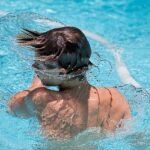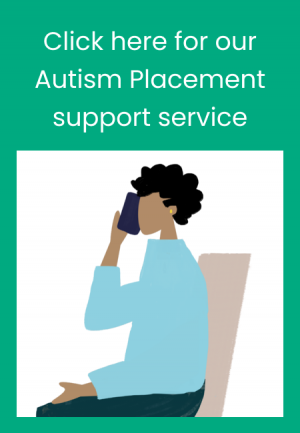This articple on Autism and Sports is offered by Jackie Edwards.
Autism and Sports: A Powerful Tool for a Healthy Lifestyle
“Participation in organized sports can lower stress, anxiety and depression in children and teens while improving health, concentration, confidence and self-esteem,” states Bozeman Sherwood, M.D.. For autistic individuals, however, sports can result in even more benefits, such as aiding in the development of social skills. With a variety of different sports to try and how parents can help foster a special interest, participation in sports can become an integral part of a healthy and happy lifestyle.

A variety of benefits in store
Sport participation already boasts a range of benefits. For starters, an active lifestyle is associated with better academic performance, problem-solving skills, and can be instrumental in the development of teamwork. The benefits of physical activity cannot be understated, especially when so many kids don’t have a particularly active lifestyle. In fact, fewer than half of children meet the Chief Medical Officer’s guidelines of participation of 60 minutes (or more) of sport and physical activity a day, highlights a Sport England Active Lives children and Young People survey. The survey unveils that almost four million children are still not physically active for at least 60 minutes each day, and further brings to light the fact that activity levels in children remain unchanged when compared to data from 2021-2022.
It’s important to note that physical activity can make a difference for those who are on the spectrum, particularly when it comes to the improvement of various autism symptoms. For instance, exercise is considered beneficial for the improvement of motor skills, sensory integration, and in regard to the development of social skills. Research published in Frontiers in Psychiatry in 2022 highlights that children and adolescents with autism spectrum disorder (ASD) who were exposed to a 48-week physical exercise-intervention program “had important improvements in ASD symptoms.” As such, the study concluded that structured exercise programs could serve as a powerful complementary therapy for those who experience the world from an autistic perspective.
How to foster a special interest
Special interests are very common among those with autism, as 75 to 95 percent have them. A 2021 article from The Transmitter points out that research conducted over the past 15 years has revealed that special interests are valuable to individuals. “In addition to occasionally launching a career, they reliably build self-confidence and help people cope with emotions,” states the article, though it’s also pointed out that studies suggest that special interests can help autistic children gain social skills and learn, too. As such, it’s important to foster your child’s special interests — those with a special interest in sports, for example, may wish to do much more than join a team.
For kids with a special interest in sports, the idea of joining a team themselves may already sound like a terrific idea, though there are additional ways to foster a special interest in sports. A goal to learn more about their favourite sport can be a great way to do this. Online resources are an ideal way to explore noteworthy players of a favourite sport like baseball together. For example, dedicated online biographies are essential when the goal is to unveil both the on-field accomplishments and personal journeys of players, from old-school legends like Babe Ruth to the many up-and-coming players of today. With the help of reputable online resources, you can not only help your child learn more about a special interest like baseball, but you can introduce to them another way to get immersed in the world of sports.
A variety of opportunities to explore
One Psych Central article by Kaitlin Vogel points out that certain sports can be more difficult for children who are on the spectrum, and notes that which sports may be more of a challenge can depend on your child’s autistic traits. For example, those who experience difficulty in a collaborative or group environment may struggle in sports that require a group element in order to play, though this shouldn’t discourage parents or children that wish to find a sports team to join. Kate Usher, an occupational therapist with the New Jersey-based autism nonprofit Durand, points out that intrinsic motivation can lead a child to the right sport for them. “Intrinsic motivation is one’s internal desire — you participate because it is fun and enjoyable, rather than working for a reward,” she says.

If your child doesn’t express an interest in a particular sport yet does want to join a team, there are several activities that have been proven to be favoured among those on the spectrum. In addition to horseback riding and martial arts, the Psych Central article notes that swimming can be particularly enjoyable. For example, it’s noted that a 2016 study discovered that swimming is “the number one chosen leisure activity for autistic children,” as many kids on the spectrum reported the activity to be more enjoyable than their neurotypical peers. ABA Centers of America recommends additional sports that can be enjoyable for those on the spectrum, particularly when it comes to group activities. These recommendations include bowling, track and field, and gymnastics. While bowling can serve as a great sport due to its adherence to repetition, track and field can cater to both individual and group endeavours. Gymnastics also offers an individualistic approach and versatility in regard to the activities available, and also serves as a great source for the development of balance, coordination, flexibility, and strength, the ABA Centers post notes.
Participation in sports presents a variety of both physical and mental health advantages for all kids, though can bring additional benefits to autistic children. While children on the spectrum can find some sports to be difficult, there are no shortage of options out there worth exploring — especially if your child already has a passion for a particular activity.
___________
If you need help looking for services for an autistic child or adult, we will do our best to help. Click below for the Autism Placement Support Service.
__________



